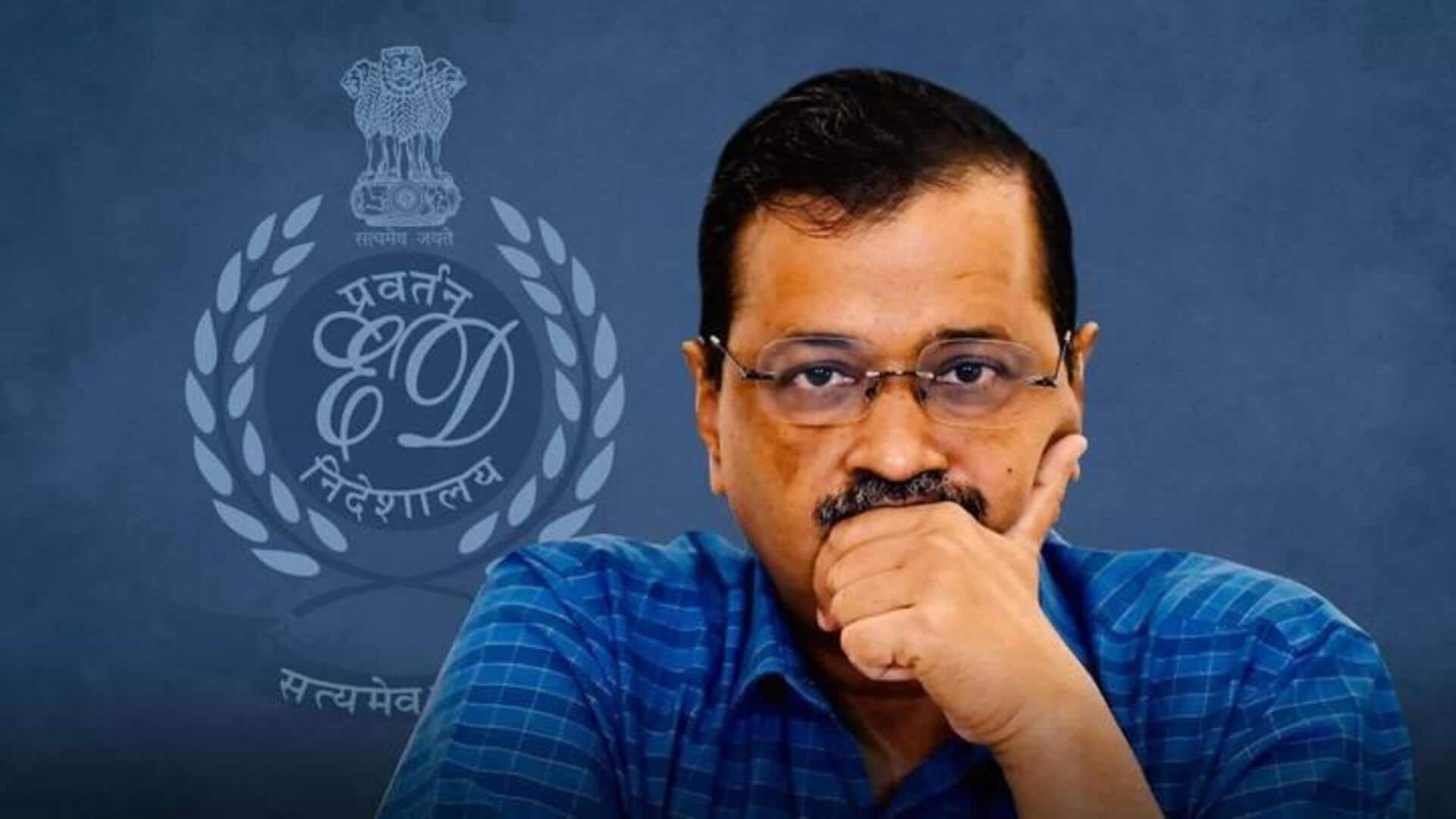
ED issues fresh summons to Delhi CM Arvind Kejriwal
What's the story
The Enforcement Directorate (ED) has issued a fifth summons to Delhi Chief Minister and Aam Aadmi Party (AAP) leader Arvind Kejriwal in connection with the Delhi liquor policy case. Kejriwal had skipped the previous four summons, labeling them "illegal and politically motivated." He also questioned the timing of the summonses, as they were issued just months before the Lok Sabha election.
Context
Why does this story matter?
Kejriwal and the AAP have objected to the summons, as it remains unclear whether the chief minister is being summoned as a witness or a suspect in the case. If he fails to appear before the investigation agency, it can petition the court for an arrest warrant. A person can ignore an ED summons three times. After that, the agency can seek a non-bailable warrant (NBW).
CBI
Kejriwal earlier questioned the CBI
Kejriwal was previously questioned in this case for nine hours by the Central Bureau of Investigation (CBI) in April of last year. He was, however, not named as an accused in the case. "CBI asked me a total of 56 questions. Everything is fake. The case is fake. I am convinced they don't have anything on us, not a single piece of evidence," he said then.
Ministers
2 senior members of AAP government in jail
Meanwhile, two senior members of his AAP government are in jail. The CBI detained former deputy chief minister Manish Sisodia in February last year in connection with alleged corruption in the formulation and implementation of the Delhi excise policy. Party MP Sanjay Singh was arrested by the ED in October in the money laundering case linked to the excise policy scam. Both are currently in Delhi's Tihar Jail.
Policy
What is the Delhi liquor scam case
The Delhi government implemented the revamped liquor excise policy in November 2021. However, it was scrapped less than a year later amid extensive corruption allegations. Central investigation agencies alleged that wholesaler profit margins were artificially boosted to 12% from 5%. They also claimed that the regulation promoted cartelization and profited those ineligible for liquor licenses for economic gain. The Kerjiwal-led Delhi administration denied the charges and said that the strategy would've raised revenue.